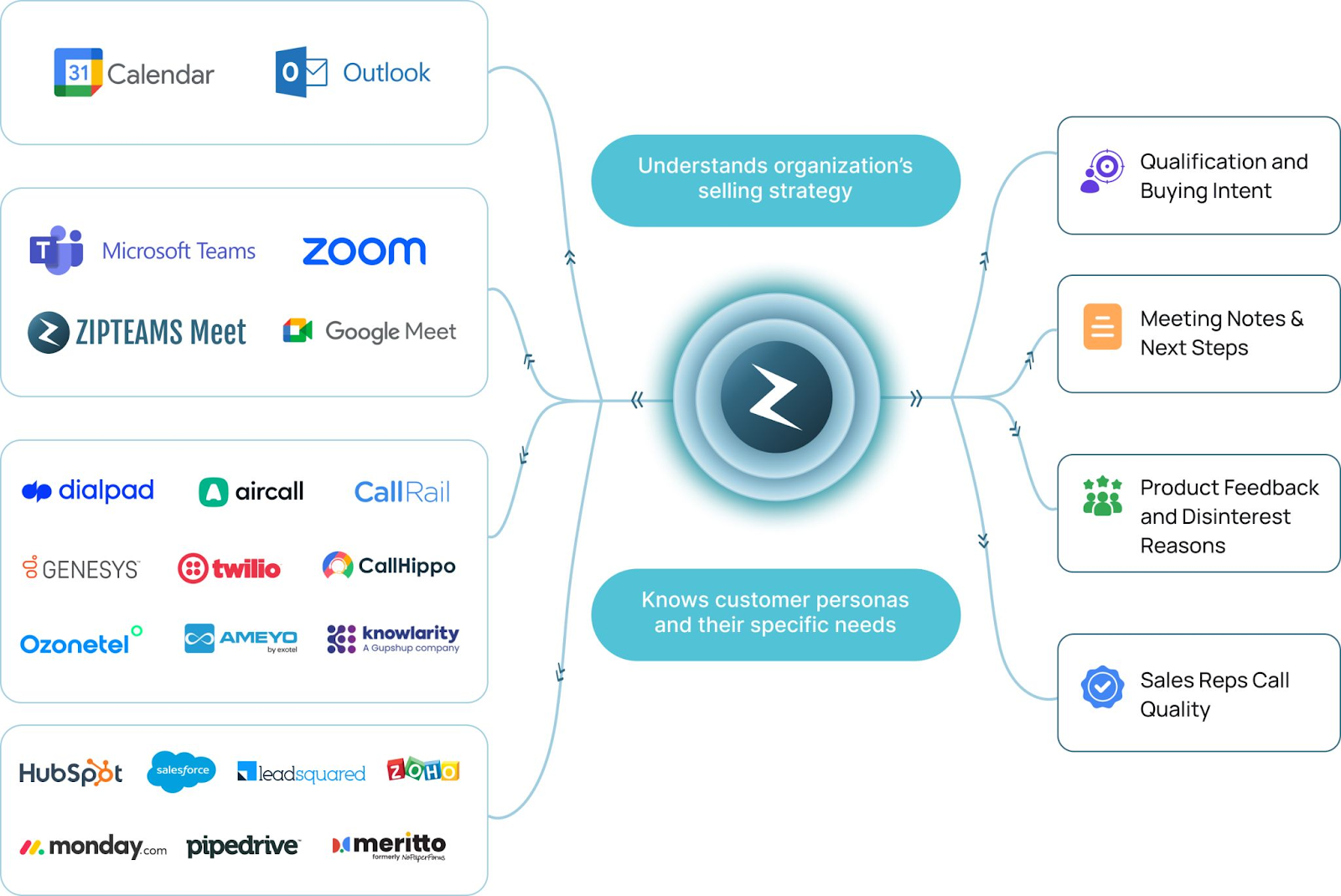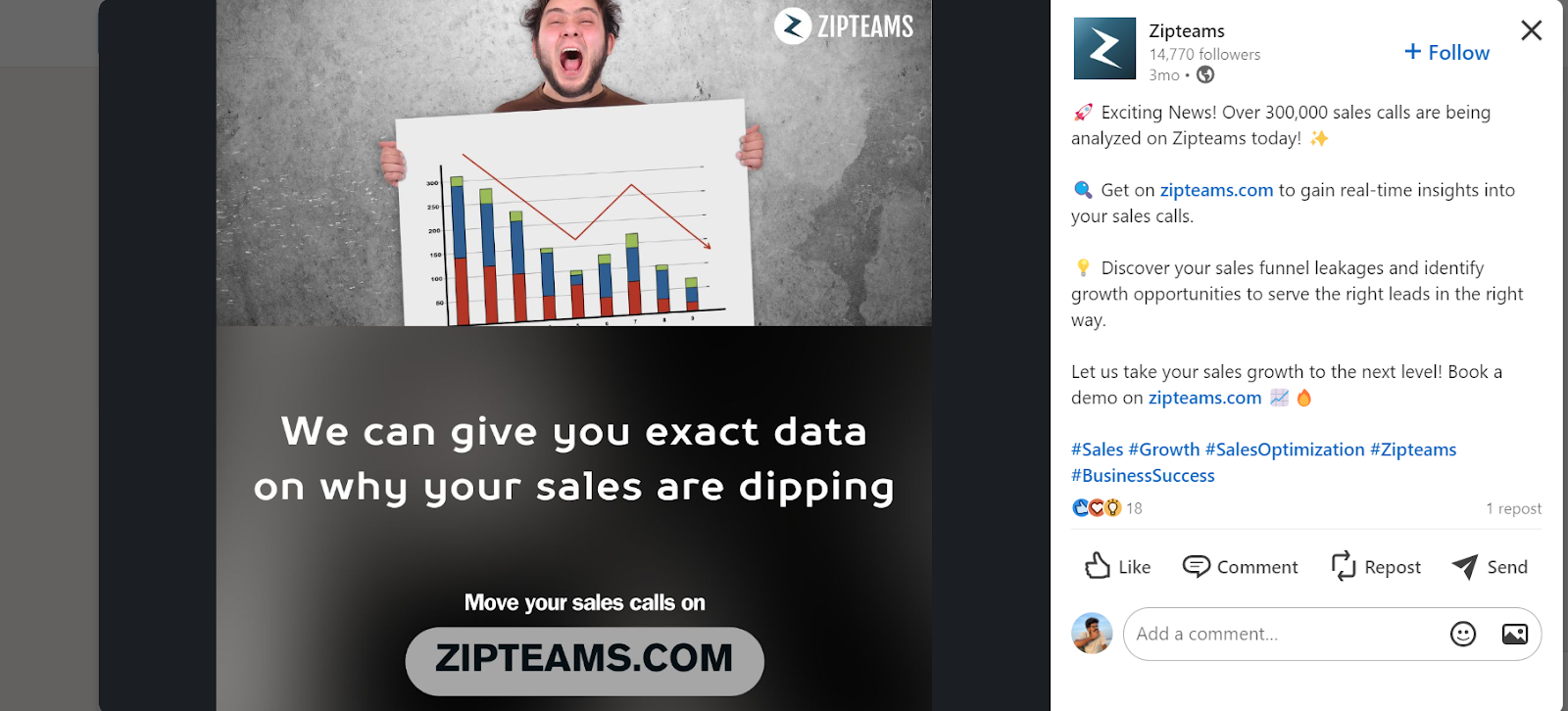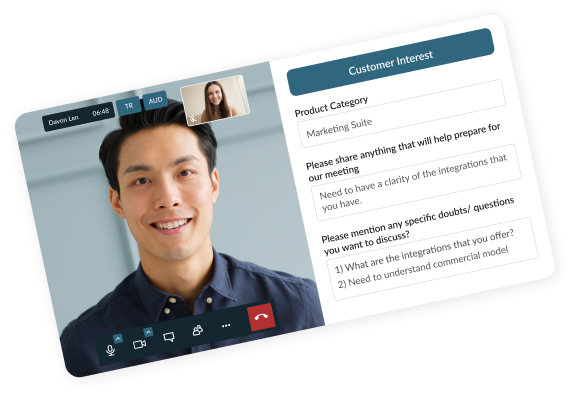Tracking sales calls is a game changer for any business looking to boost performance. It’s not just about logging calls. It’s about understanding what drives conversions and where improvements can be made.
With the right software, you can see which conversations are moving the needle, allowing your team to adjust their approach and make more informed decisions. By capturing this data, you’re giving your business the insights to sharpen its focus and close deals more effectively.
A CRM-integrated call-tracking solution takes things up a notch. By linking every call to customer profiles, it builds a full history of interactions, enabling more personalised and targeted follow-ups. With automated workflows and real-time reporting, your sales team can spend less time on manual tasks and more time turning leads into customers.
Let’s take a closer look at how CRM-integrated call tracking can transform your sales efforts. We’ll break down its core advantages, how it simplifies day-to-day tasks, and why it delivers better results than other options. With powerful customer insights and real-time data, these tools help you make smarter, faster decisions that drive growth.
What is Call Tracking Software?
Call tracking software is an advanced call management tool for monitoring and analysing phone interaction with customers. The software captures comprehensive information like caller ID, call duration, call sources, and call recording to provide actionable insights into customer profiles.
Call-tracking software improves optimisation across your sales, marketing, customer success, and staff training teams. From lead management and marketing campaigns to personalised customer support and effective training, Call-tracking software is indispensable for businesses to achieve higher revenue and growth.
Types of Call Tracking Solutions
The landscape of call-tracking software solutions offers a variety of options, each designed to meet different business needs and budgets. Following are the popular types of available call tracking solutions
1. CRM-Integrated Call Tracking Solutions
- Automatically syncs call data with customer profiles in the Customer Relationship Management (CRM).
- Provides real-time access to customer interaction histories across sales and support.
- Offers advanced reporting features like lead scoring, conversion tracking, and campaign attribution
2. Standalone Call Tracking Software
- Tracks and logs call independently without integration into other systems.
- Offers basic features like call recording and basic reporting.
- Suitable for small businesses with simple tracking needs but lacks deeper data insights and automation
3. Paid Call Tracking Solutions
- Includes advanced features like dynamic number insertion, AI-based call transcription, and detailed analytics.
- Provides scalability for growing businesses with high call volumes.
- Supports integration with CRMs, marketing platforms, and real-time reporting for performance optimisation
4. Free Call Tracking Solutions
- Offers basic call logging and limited reporting features.
- Typically lacks integration with CRM or other business tools.
- Suitable for small operations or startups with minimal call tracking needs, but can hinder scalability as the business grows.
CRM-integrated solutions that sync call data for a comprehensive view of interactions offer a clear advantage over other call-tracking solutions.
Key Features of CRM-Integrated Call Tracking Software
CRM-integrated call-tracking software boasts a large suite of features across departments that can elevate overall functions of your CRM application.
Seamless Integration with CRM Systems
One key feature of CRM-integrated call-tracking software is hassle-free integration into existing CRM software. With Call-tracking solutions, your business can log detailed call activity in the CRM contact timelines. Automated syncing of the data ensures that all interactions are recorded accurately, allowing for better tracking and improved data reliability.
Advanced Analytics and Reporting
CRM-integrated call tracking tools offer robust analytics that allows businesses to monitor sales performance in real time. These platforms generate detailed reports, providing insights into call volume, duration, conversion rates, and the effectiveness of various marketing campaigns.
Customisable Call Routing and Management
Advanced CRM-integrated call tracking software offers customisable call routing options, directing incoming calls to the appropriate team members or departments based on criteria like caller location, lead score, or inquiry type. This ensures that customers are connected with the most relevant support or sales representative, improving response times and enhancing customer satisfaction.
Benefits of Using CRM-Integrated Call Tracking Software
Integrating call-tracking software with your CRM system provides a range of powerful benefits that can transform how your business manages customer interactions and improves sales performance.
-
Enhanced Data Accuracy
With CRM-integrated call tracking, all call data—such as call logs, outcomes, and customer details—is automatically synced into the CRM system, eliminating the need for manual data entry. This ensures that sales teams have access to the most accurate and up-to-date information, leading to better decision-making and more effective follow-ups.
-
Improved Customer Insights
By linking call data with customer profiles, CRM integration offers a complete view of the customer journey. Sales reps can access detailed histories of interactions, including past calls, emails, and other touchpoints, allowing them to tailor their communication strategies. This enhanced insight into customer needs and behavior leads to more personalised service and increases the chances of closing sales.
-
Streamlined Workflows
CRM-integrated call-tracking software simplifies sales by centralising customer information and automating routine tasks like logging calls and updating lead statuses. This reduces sales reps’ administrative work and allows them to focus on high-priority activities, such as following up with leads and closing deals. By streamlining workflows, businesses can enhance team productivity and improve overall sales efficiency.
-
Data-Driven Decision Making
Integrating call-tracking software into a CRM system provides businesses with real-time analytics and reporting features. These data insights allow sales leaders to monitor call performance, track conversion rates, and adjust strategies based on the most successful call outcomes. A data-driven approach helps identify high-value leads, forecast sales trends, and make informed decisions about resource allocation and sales tactics.
Compared to CRM-integrated call tracking softwares, free call tracking softwares comes with drawbacks in offering features and security measures. Let’s briefly explore the major drawback of free call-tracking software.
Drawbacks of Free Call Tracking Software
Though free call tracking software offers tracking and reporting on incoming and outgoing calls, it often comes with limitations, creating challenges for a competitive business sector.
1. Limited Features and Functionality: Free call tracking softwares lacks advanced features like analytics transcription and CRM integration. Typically, these features are reserved for paid plans.
2. Support and Reliability Issues: Most free call-tracking software offers limited customer support. Without enough technical support, business operations can face reliability issues.
3. Data restriction and privacy: One of key drawbacks of free call tracking software is limited storage and data access. Free softwares tends to lower security measures and raise concerns about data privacy.
4. Scalability: Most free software offers limited options for scalability and customisation which can be a concern for growing businesses.

Business-Specific Use Cases in CRM
Though a call tracking software’s implications are multifaceted, there are few strategic use cases where CRM-integrated call tracking softwares can be a potential game changer.
Sales
- Lead Scoring and Management: Automatically scores and prioritises leads based on call interactions, helping sales teams focus on high-value prospects.
- Personalised Follow-Ups: Provides sales reps with detailed call histories, enabling tailored follow-ups that improve conversion rates.
- Performance Tracking: Allows managers to monitor individual and team call performance, facilitating targeted coaching and strategy adjustments
Marketing
- Campaign Attribution: Tracks which marketing campaigns generate the most inbound calls, providing clear insights into the effectiveness of each campaign.
- Audience Targeting: Helps refine targeting by analysing which channels or ads drive quality leads, allowing for better allocation of marketing resources.
- Real-Time Reporting: Delivers real-time analytics on call volume, lead quality, and conversion rates, supporting data-driven marketing decisions.
Customer Support
- Faster Issue Resolution: Logs customer support calls and connects them to customer profiles, enabling faster and more accurate problem-solving.
- Personalised Customer Service: Provides agents with access to detailed call histories, allowing for more personalised and efficient customer interactions
- Quality Monitoring: Managers can review recorded calls for quality assurance and training, helping to improve service standards
Data Management
- Centralised Data Hub: All call data is automatically logged in the CRM, ensuring accurate and up-to-date customer information without manual entry.
- Enhanced Reporting: Provides comprehensive reports on call metrics, customer interactions, and overall business performance, facilitating more strategic decisions
- Automated Data Sync: Ensures that all customer interactions, including calls, are automatically synced and updated in the CRM for a single source of truth
Choosing the Right Call Tracking Software
Selecting the right call-tracking software depends on various factors that align with your business goals and operational needs:
- Integration Capability: Ensure the software integrates seamlessly with your existing CRM and other tools, such as marketing automation platforms. This ensures smooth data flow across departments, enhancing productivity and insights.
- Business Needs: Consider the specific needs of your business, whether it’s lead management for sales, campaign tracking for marketing, or customer support improvements. Choose a solution that provides features and reporting capabilities that are aligned with these goals.
- Budget: Compare the cost of various solutions, from free basic tools to premium software with advanced features. Assess what features are essential and balance these against the overall cost to ensure value for your investment.
- ROI: Evaluate how the software will contribute to your return on investment. Features like lead scoring, campaign attribution, and automated workflows can significantly boost efficiency, leading to higher conversion rates and reduced manual work.
- Scalability: As your business grows, your call-tracking needs may evolve. Choose software that can scale with your operations, offering higher call volumes, more users, or enhanced reporting features as needed.
- Customer Support and Desired Features: Look for a provider that offers robust customer support and addresses any technical issues promptly. Additionally, prioritise features like call recording, real-time analytics, and customisable reporting that are critical for your business operations.
Careful consideration while selecting solutions ensures your venture can extract the true potential of call-tracking softwares.
Zipteams’ AI-powered Call Tracking Software
Zipteams offers innovative AI-powered call-tracking software that enhances customer interactions and streamlines sales processes. With features like AI-powered meeting rooms, the platform provides real-time intelligence, automated note-taking, and engagement insights, allowing sales teams to connect more effectively with customers.
This intelligent setup captures critical information during discussions and helps understand customer sentiment, ensuring that every interaction is meaningful and productive.
The software’s conversational intelligence uses natural language processing to analyse calls, offering contextual recommendations and sentiment analysis. This empowers sales representatives to tailor their responses based on customer emotions and intents, ultimately improving engagement and conversion rates.
Furthermore, Zipteams integrates seamlessly with popular CRM systems like Salesforce and HubSpot, automating data syncing to enrich customer records. This integration facilitates better lead management and forecasting by providing insights into potential sales opportunities derived from conversation analysis.
Contact us today to supercharge your CRM with AI-powered call-tracking tools.






